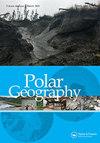环境评估作为知识中介工具的有利条件和挑战:来自努纳武特的教训
IF 1.6
Q3 GEOGRAPHY, PHYSICAL
引用次数: 1
摘要
知识代理是具有不同知识基础的各方之间以知识交换和学习为目的的沟通和互动过程。本文研究了北极环境评估(EA)中的知识代理作为一种支持学习、能力建设和权力共享的机制。该研究评估了由努纳武特影响审查委员会管理的努纳武特环境评估过程下加拿大东部北极地区知识中介的有利条件和挑战。方法包括焦点小组和审查立法、过程文件和EA指导,以检查监管环境和董事会的EA过程如何支持知识代理。结果表明,如果EA要支持知识代理,它不仅应该关注社区,还应该关注EA机构——那些直接支持和支持知识代理的机构,以及那些提供辅助信息和具有重要监管作用的机构。使EA成为中介知识的平台还需要通过项目资助模型提供的投资之外的投资。虽然许多司法管辖区正在追赶加拿大北极地区的EA系统,并学习如何将土著参与和知识共享的最佳实践纳入其中,但Nunavut的共同管理流程为探索通过EA进行有效知识中介所需的实施条件提供了一个模型和学习机会。本文章由计算机程序翻译,如有差异,请以英文原文为准。
Enabling conditions and challenges to environmental assessment as a tool for knowledge brokerage: lessons from Nunavut
ABSTRACT Knowledge brokering is a process of communication and interaction aimed at knowledge exchange and learning between parties with different knowledge bases This paper examines knowledge brokering in Arctic environmental assessment (EA) as a mechanism to support learning, build capacity, and sharing power. The study assessed enabling conditions and challenges to knowledge brokering in the eastern Canadian Arctic under the Nunavut EA process, managed by the Nunavut Impact Review Board. Methods included focus groups and review of legislation, process documents, and EA guidance to examine how the regulatory environment and Board’s EA process support knowledge brokering. Results illustrate that if EA is to support knowledge brokering, it should focus not only on communities but also on EA institutions – those that directly enable and support knowledge brokering, and those that provide ancillary information and have important regulatory roles. Enabling EA as a platform for brokering knowledge also requires investment beyond that provided through project-by-project funding models. While many jurisdictions are catching up to EA systems in Canada’s Arctic, and learning how to incorporate best-practices for Indigenous engagement and knowledge sharing, Nunavut’s co-managed process offers a model and learning opportunities for exploring the implementation conditions necessary for effective knowledge brokering through EA.
求助全文
通过发布文献求助,成功后即可免费获取论文全文。
去求助
来源期刊

Polar Geography
GEOGRAPHY, PHYSICAL-
CiteScore
5.30
自引率
0.00%
发文量
13
期刊介绍:
Polar Geographyis a quarterly publication that offers a venue for scholarly research on the physical and human aspects of the Polar Regions. The journal seeks to address the component interplay of the natural systems, the complex historical, political, economic, cultural, diplomatic, and security issues, and the interchange amongst them. As such, the journal welcomes comparative approaches, critical scholarship, and alternative and disparate perspectives from around the globe. The journal offers scientists a venue for publishing longer papers such as might result from distillation of a thesis, or review papers that place in global context results from coordinated national and international efforts currently underway in both Polar Regions.
 求助内容:
求助内容: 应助结果提醒方式:
应助结果提醒方式:


